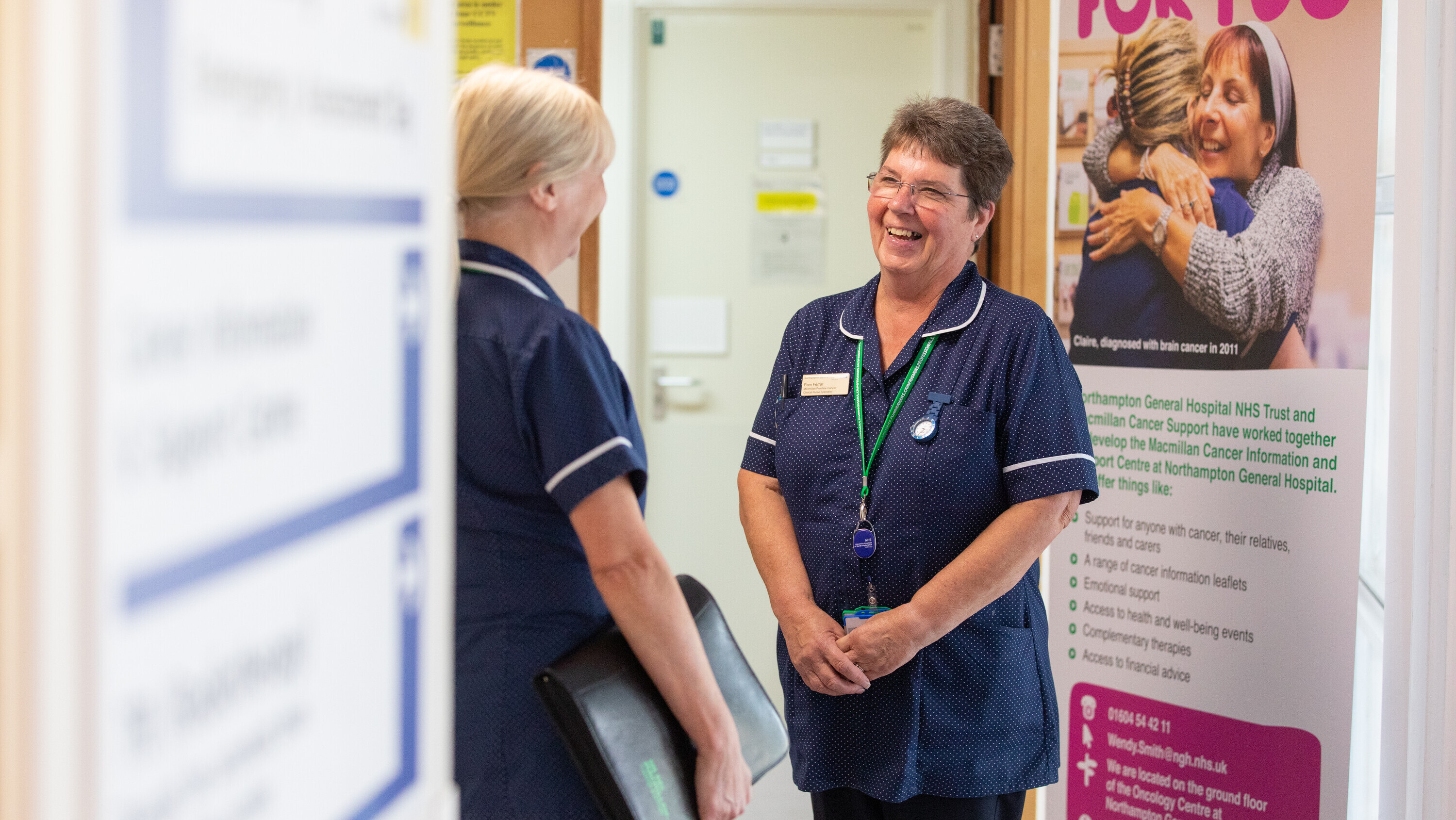Cancer, pregnancy and having children: What you need to know
Being diagnosed with cancer can be life‑changing. If you are pregnant or planning on having children, it can raise extra worries about treatment, breastfeeding and future fertility.
The following information is from our clinically reviewed cancer pages and answers the questions people most often ask. We also link to further trusted resources so you can explore each area in more detail.
Questions about pregnancy and cancer
I am pregnant and have cancer, how will I be treated?
Research shows that if you have cancer and are pregnant, you can usually be treated as effectively as someone who is not pregnant.
Doctors will aim to make your treatment as similar as possible to that of someone with the same type and stage of cancer who is not pregnant. Sometimes certain treatments may need to be delayed until later in pregnancy or after birth.
Does pregnancy make cancer grow faster?
No. Large studies across many cancer types show pregnancy hormones do not make cancer grow or spread faster.
Find out more about pregnancy and cancer.
Can I have tests for cancer during pregnancy?
You may worry that tests could put the baby’s health at risk. Your doctors will choose tests that do not risk exposing the baby to harmful amounts of radiation. They will try to avoid:
- bone scans
- PET scans
- CT scans.
If your doctors think you need a test they would usually avoid, they will talk to you about it. They will explain how they can reduce any possible risk to the baby.
Is cancer treatment safe during pregnancy?
Some treatments can be given while you are pregnant. Your plan will depend on:
- the type and stage of the cancer
- how many weeks pregnant you are
- your overall health
- how urgently treatment needs to start.
Chemotherapy
Chemotherapy is usually delayed until after the first trimester. It may be given after with careful monitoring.
Radiotherapy
Radiotherapy is not usually given during pregnancy unless the treatment is urgent and is not in an area that is close to the womb.
Your multidisciplinary team will balance the benefits of starting treatment promptly with any risks to your baby, and will explain every option so you can make informed decisions.
Your midwife and pregnancy doctor (obstetrician) work closely with the team treating the cancer. During pregnancy, you will have extra ultrasound scans of your baby to make sure there are no problems.
Learn more about making treatment decisions during pregnancy.
Can I breastfeed after cancer treatment?
Breastfeeding may still be possible, but it depends on the treatment you have had.
Some types of cancer treatments, such as chemotherapy, hormone therapy, targeted therapy or immunotherapy can pass into breast milk.
Your cancer team might advise you to wait until these medicines have completely left your system before feeding your baby. They will explain how long this might take for your specific treatment.
You could think about expressing milk. You will not be able to keep this milk for your baby. But expressing milk means you will still be producing milk when your treatment has finished.
If you have had surgery or radiotherapy to the breast or chest, this can affect milk supply from the treated side. Many people are still able to feed from the other side.
Always talk to your cancer doctor, midwife, or a feeding specialist before starting or resuming breastfeeding.
If you prefer to use terms other than breastfeeding, let your midwife or feeding specialist know.
Find out more about breastfeeding and cancer.
Should I delay having children after cancer treatment?
Many people go on to have children after cancer. Your doctor may recommend waiting before trying to conceive or starting fertility treatment. This allows time for your body to recover and to monitor your health.
How long you might need to wait may be different depending on your situation. If treatment could affect your fertility your cancer doctor or nurse will explain the risks before your treatment. They can explain if there are ways you might be able to protect your fertility during cancer treatment.
When you are ready, your oncology and fertility teams can assess your reproductive health and help you decide the safest time to start trying to get pregnant.
Learn more about fertility and cancer.
Kimberley's story
Kimberley was diagnosed with tonsil cancer in 2015, while pregnant with her second child. Here she shares her experience.
“I credit my pregnancy to my diagnosis and swift treatment. I do believe my daughter saved my life... If you are pregnant with symptoms do not wait. As a patient with a young family, remember to allow yourself to recover as much as possible. Your family needs you well more than they need you in the moment.
My Macmillan nurse was my greatest source of support still is, ten years later. An absolutely invaluable resource.”
How to find reliable information
Accurate information helps you make informed choices. Rely on expert sources such as Macmillan Cancer Support, the NHS and your own healthcare team.
Online forums and social media can be helpful to hear other people's experiences, but always check medical details with your doctor or nurse.
We have more information on how to find reliable health information online.
We are here to help
- Find local cancer support services near you with our simple online search.
- Call the Macmillan Support Line for free on 0808 808 00 00, if you have any questions.
- Use our Online Chat
- Visit our Online Community to talk with people who have been affected by cancer, share your experience, and ask an expert your questions.
Specialist pregnancy and cancer support
Mummy’s Star are a charity supporting families affected by cancer during pregnancy or within a year after birth.
About our information
This information has been written, revised and edited by Macmillan's Digital Content Editor team. Learn more about our Digital Content Editors and how we produce our cancer information.
Accurate information helps you make informed choices. Look for trustworthy, reliable sources such as Macmillan Cancer Support, the NHS and your own healthcare team.
We have more information on how to find reliable health information online and understanding cancer myths and misinformation.
About the author

Ros Ayres
Read more
-
Blogs 22 May 2025It has been reported in the news recently that extra cancer screenings could detect early cases of breast cancer in dense breasts. In this blog, we try and answer some of the questions people might...
-
Blogs 22 Apr 2025The UK Government has recently published a Green Paper that outlines potential changes to the benefits system. In this blog, we explain how it might impact people living with cancer.
-
Blogs 29 Apr 2025In this blog, we discuss ways people with cancer can get support to meet their spiritual needs and how to have conversations about your spirituality, religion and faith with your health care team.






